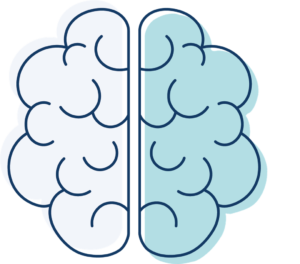Brain injury
Concussion is probably one of the most common causes of brain injury. Brain injuries are frequent in contact sports, such as football/soccer, boxing, rugby, icehockey but also in cycling, ice skating and horse riding. Road traffic accidents, whether in the car or on the bike are a common source of mild traumatic brain injuries as well. Falls and hitting the head against a hard surface (i.e. ceiling, table etc) are another frequent cause of such injuries.

Effects of concussion
Despite the fact that a concussion is very common with possibly long lasting effects on quality of life, there seems little knowledge about available treatment options. Many concussion signs and symptoms resolve by nature or spontaneously. Unfortunately about 20-30% of brain injury victims will suffer residual complaints for a prolonged period of time.
The pathophysiology of a concussion is complex and involves both structural and functional changes to the brain. The force of the impact may cause the brain to twist or rotate within the skull, leading to shearing of nerve fibers and damage to brain tissue.
Concussion can also cause biochemical changes in the brain. The impact can disrupt the blood-brain barrier, leading to an influx of inflammatory cells and chemicals that can damage brain tissue. The brain may also experience a sudden release of neurotransmitters, including glutamate, which can cause excessive excitability in neurons and lead to cell death.
Effects in acute- and subacute phase
The effects of a concussion are not always immediately apparent. It can take hours or even days for symptoms to appear, and recovery times can vary widely. In the acute phase, patients may experience symptoms such as headache, dizziness, nausea, and confusion. These symptoms are believed to be related to changes in blood flow and metabolism in the brain.
In the subacute and chronic phases, patients may experience persistent symptoms, such as cognitive deficits, mood changes, and sleep disturbances. These symptoms are thought to be related to ongoing inflammation and changes in brain connectivity.
Be aware of the symptoms
Overall, the pathophysiology of concussion is complex and involves both structural and functional changes in the brain. While most people recover fully from a concussion, some may experience persistent symptoms, and repeated concussions can lead to more severe and long-lasting brain damage. Therefore, it is important to take measures to prevent concussion and to seek prompt medical attention if a concussion is suspected.
Do you still have complaints after concussion?
Start your recovery with the online concussion training plan. This program will help you and many more people.